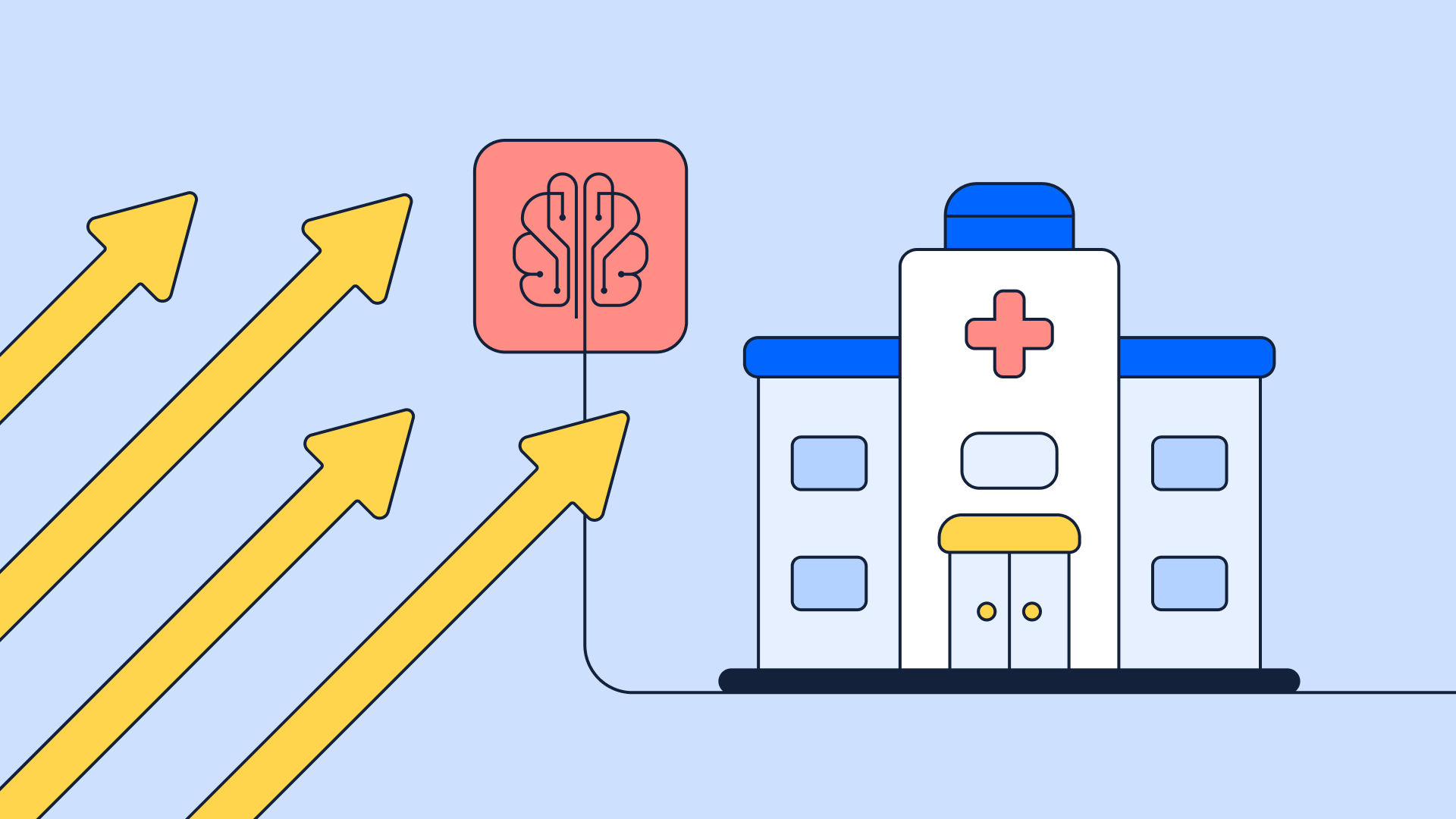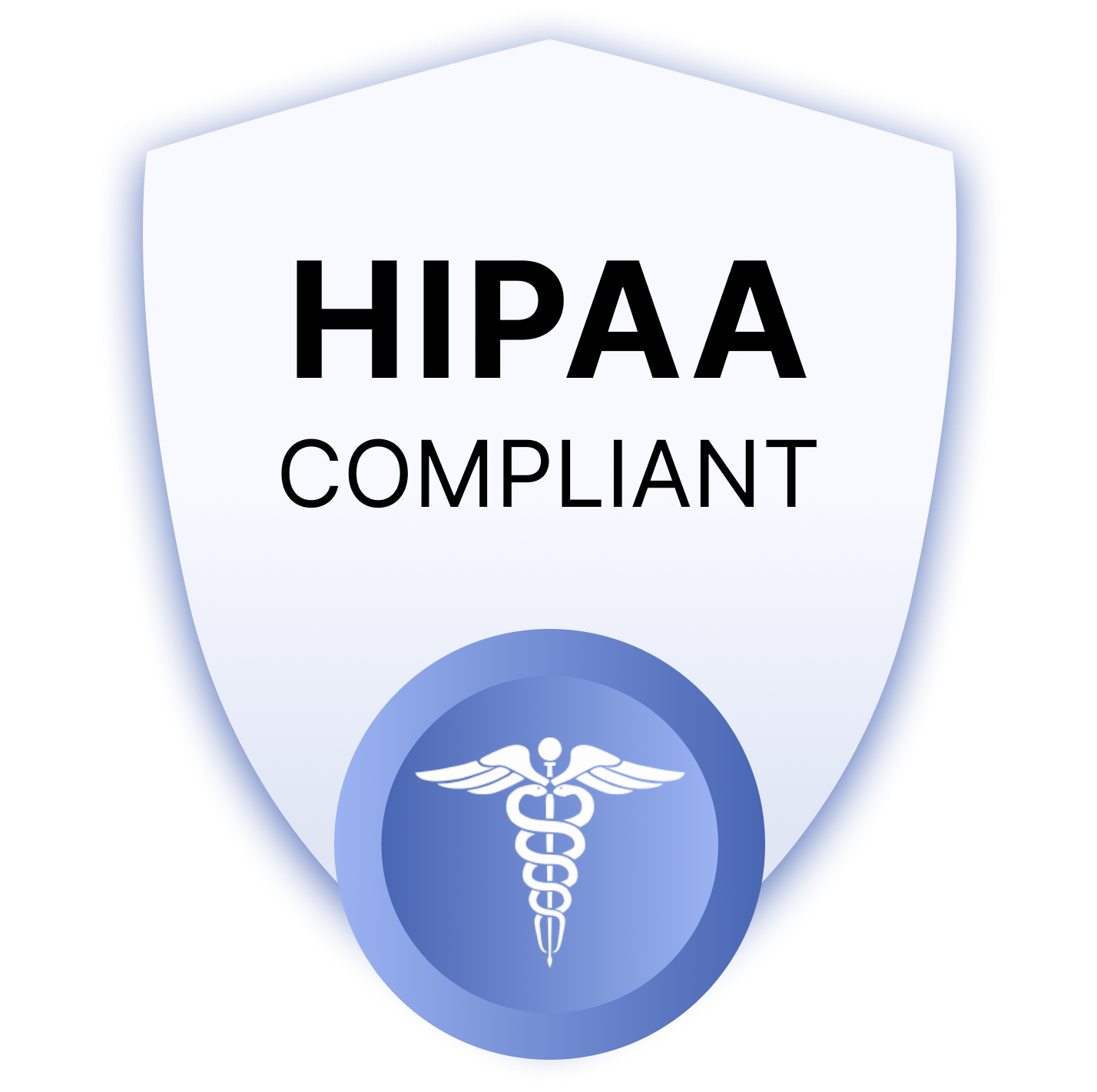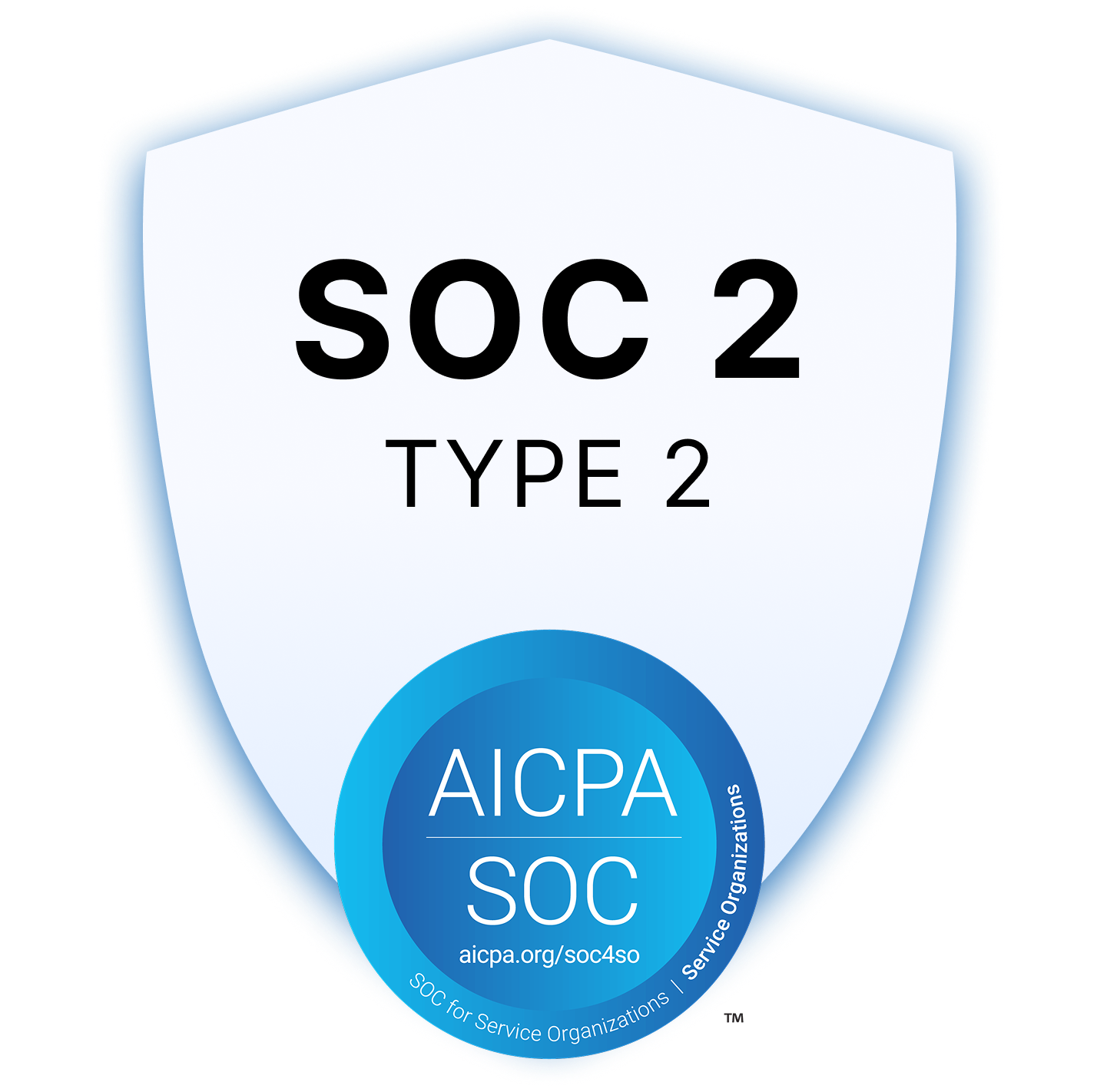
AI in Healthcare
3 min read
5 Major Benefits of AI in Healthcare
Summary
Your Competitors Are Embracing AI – Are You Falling Behind?
Artificial intelligence (AI) is increasingly becoming a cornerstone in the advancement of healthcare services, offering a range of benefits that promise to reshape the industry.
From enhancing diagnostic accuracy to personalizing treatment plans, the integration of AI into healthcare systems has the potential to greatly improve patient outcomes and optimize healthcare delivery.
Likewise, AI contributes to the development of new drugs and therapies by streamlining research processes and analyzing complex biological data.
In this article, we will explore the multifaceted benefits of AI in healthcare and how this technology is revolutionizing patient care, healthcare administration, and medical research.

The Benefits of AI in Healthcare: TL;DR
Artificial Intelligence (AI) is revolutionizing the healthcare industry, providing significant benefits that improve patient outcomes and optimize healthcare processes.
Efficiency and Cost Reduction:
- Predictive analytics in AI reduce operational costs by streamlining hospital workflows.
- Automated patient intake processes decrease wait times and administrative burden.
Enhanced Patient Care:
- AI-driven tools support accurate diagnosis and tailored treatment plans.
- They assist in preventive care by analyzing large datasets to predict health risks.
How Is AI Helping in the Healthcare Industry?
Artificial Intelligence (AI) is revolutionizing the healthcare industry by enhancing various aspects of patient care and administrative efficiency. Here are the pivotal ways in which AI contributes to the medical field:
- Improving Patient Outcomes: Through AI, healthcare providers can offer personalized treatment plans by analyzing large datasets, leading to better patient outcomes.
- Enhancing Efficiency: AI algorithms process vast amounts of data rapidly, assisting in diagnostics, reducing the incidence of human error, and contributing to faster decision-making.
- Cost Reduction: Automation of administrative tasks reduces overhead costs and streamlines care delivery, making healthcare services more accessible.
AI in Healthcare Benefits:
- Diagnostic Precision: AI programs support radiologists and pathologists in identifying subtle patterns in imaging data, which could lead to earlier and more accurate diagnoses.
- Optimized Treatments: By analyzing patient data, AI helps in selecting the most effective treatment options, resulting in improved care.
How Does AI Benefit Healthcare?
- Predictive Analytics: AI predicts disease outbreaks and patient admissions, enabling better resource allocation.
- Chronic Disease Management: AI tools monitor patient conditions in real time, making chronic disease management more effective.
How Does AI Help the Medical Field?
- Research Acceleration: AI quickens the pace of medical research by sifting through scientific papers and genetic information, speeding up discoveries.
- Robotic Assistance: Surgical robots, powered by AI, assist surgeons with precision and control during operations.
What Are the Advantages of Artificial Intelligence in Healthcare? 5 Biggest Pros of AI in Healthcare
1. Enhanced Diagnostic Precision
One significant advantage of AI is its ability to increase the accuracy of diagnoses. Machine learning algorithms can assess medical images, such as MRIs and CT scans, with a level of detail surpassing human ability. This results in the early and accurate detection of diseases, which is crucial for effective treatment.
2. Personalized Treatment Plans
AI facilitates the customization of healthcare to individual patient needs. By analyzing a patient's medical history and ongoing health data, AI systems can suggest tailored treatment regimens. This personalized approach is especially transformative in fields like oncology, where precision medicine can lead to better outcomes.
3. Operational Efficiency
AI has improved efficiency in healthcare operations by automating routine tasks, such as scheduling and claims processing. This automation not only reduces the administrative burden but also speeds up service delivery, leading to better patient experiences and cost savings for healthcare providers.
4. Preventive Healthcare
Through continuous monitoring and predictive analytics, AI enables a shift toward preventive care models. By anticipating potential health issues before they become serious, AI-powered systems can advise early interventions, contributing to longer, healthier lives and reducing the strain on healthcare systems.
5. Population Health Management
AI's ability to handle large datasets is invaluable in population health management.Using AI, healthcare professionals can identify patterns, track disease outbreaks, and allocate resources more effectively.This not only benefits individual patients but also enhances overall community health.
These advancements are rapidly transforming the healthcare landscape.They make services more effective, personalized, and accessible while optimizing systemic efficiency and healthcare outcomes.
Unlock 300+ integrations with no hidden fees, bespoke rewards, and dedicated support
Related Articles















